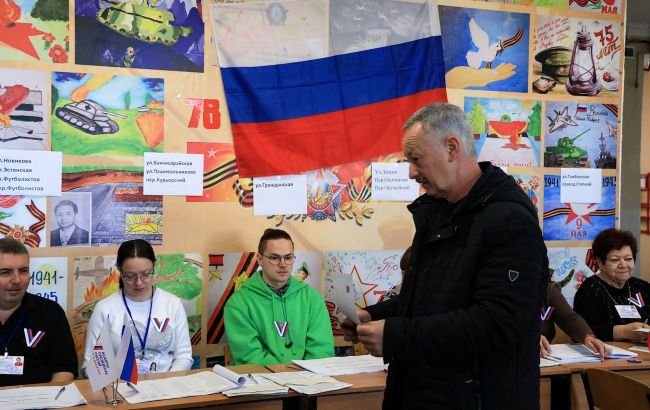Experts report eighth year of global democratic decline
 Photo: Russian elections in the temporarily occupied Crimea (getty images)
Photo: Russian elections in the temporarily occupied Crimea (getty images)
Last year saw the largest decline in trust in elections and parliamentary oversight in nearly half a century. The causes include government intimidation, foreign interference, misinformation, and misuse of artificial intelligence, according to the report by the International Institute for Democracy and Electoral Assistance (International IDEA).
The election trust crisis is reflected in declining voter turnout, leading to more frequent challenges to election results. According to the report, one in three elections is contested in some form.
The organization, which includes governments from 35 member countries, reported that the average percentage of the voting-age population that voted fell from 65.2% in 2008 to 55.5% in 2023.
"Elections remain the single best opportunity to end democratic backsliding and turn the tide in democracy’s favor," said International IDEA’s Secretary-General, Kevin Casas-Zamora
IDEA’s global report on the state of democracy, which has been measuring democratic indicators in 158 countries since 1975, found that 47% of countries experienced a decline in key democratic indicators over the past five years, marking the eighth consecutive year of global democratic backsliding.
The report notes that 2023 was the worst year in terms of free and fair elections and parliamentary oversight.
The decline spans both traditionally strong democracies and weaker governments worldwide.
The study indicates that while the United States has largely maintained stability, countries such as Guatemala, Peru, and Uruguay have seen a decline, particularly in the areas of rule of law and civil liberties.
The US ranks just behind Türkiye and Russia among the 20 largest economies likely to experience violent political upheavals next year, according to an analysis by Bloomberg Economics.

